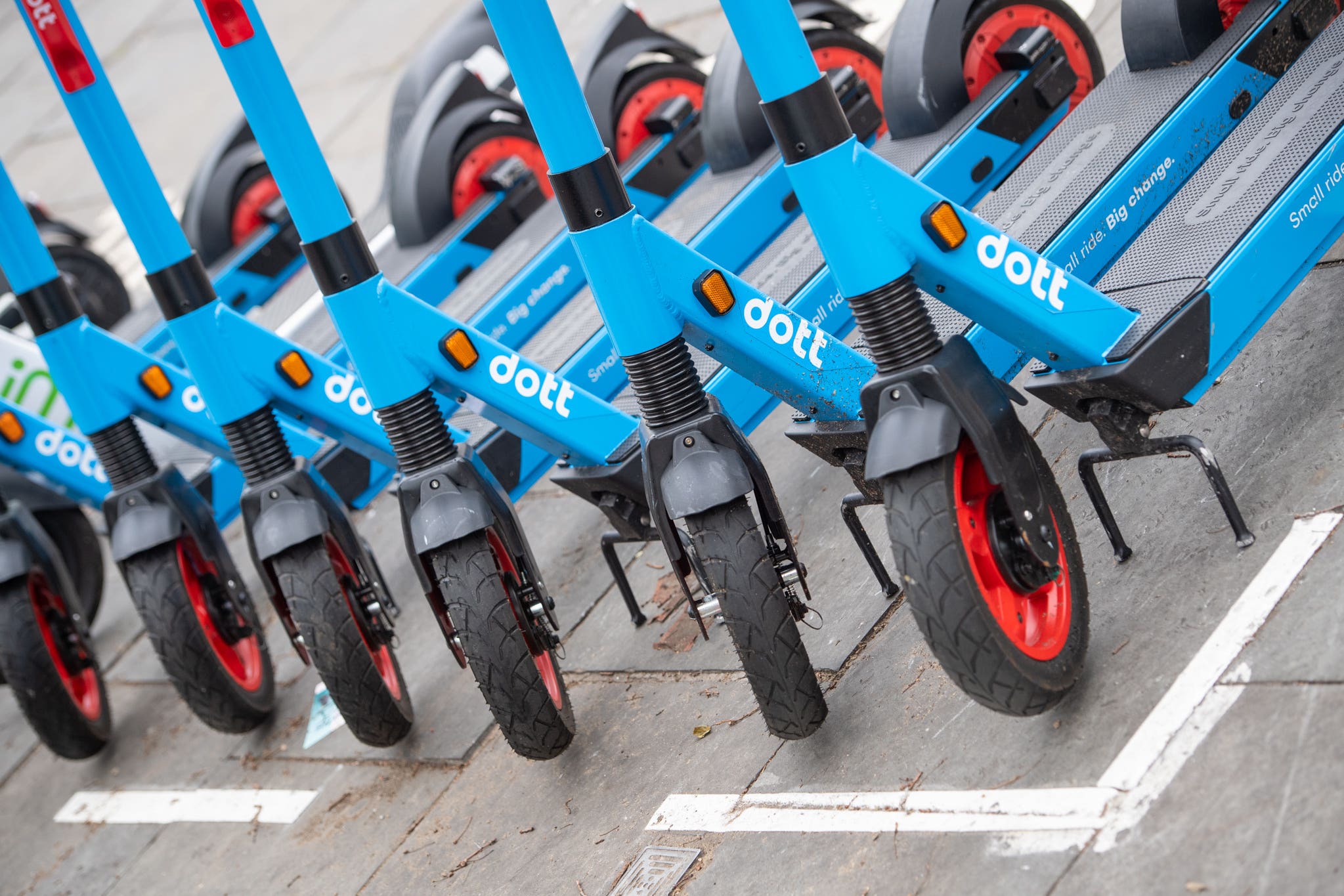E-scooter sounds to help cut crashes with pedestrians will be tested
People including some who are blind or partially sighted will wear a virtual reality headset to immerse them into simulations involving e-scooters.

Your support helps us to tell the story
From reproductive rights to climate change to Big Tech, The Independent is on the ground when the story is developing. Whether it's investigating the financials of Elon Musk's pro-Trump PAC or producing our latest documentary, 'The A Word', which shines a light on the American women fighting for reproductive rights, we know how important it is to parse out the facts from the messaging.
At such a critical moment in US history, we need reporters on the ground. Your donation allows us to keep sending journalists to speak to both sides of the story.
The Independent is trusted by Americans across the entire political spectrum. And unlike many other quality news outlets, we choose not to lock Americans out of our reporting and analysis with paywalls. We believe quality journalism should be available to everyone, paid for by those who can afford it.
Your support makes all the difference.Universal e-scooter sounds created to reduce the number of crashes with pedestrians will be tested from this week.
Micromobility company Dott said people, including some who are blind or partially sighted, will wear a virtual reality headset to immerse them into simulations involving e-scooters emitting three sounds.
They will be asked to identify when they are first aware of the e-scooter and provide feedback on the suitability of the sounds.
The sounds have been developed by researchers at the University of Salford.
There are concerns the virtually silent motors of e-scooters can make the contraptions dangerous for pedestrians.
Department for Transport figures show one pedestrian was killed and a further 62 were seriously injured in collisions with e-scooters in Britain during the 12 months to the end of June.
A further 180 suffered minor injuries.
Tests of the sounds will take place in a laboratory in London, in partnership with the Royal National Institute of Blind People (RNIB).
They will be repeated in Italy, Sweden and Spain, before trials take place on public roads.
The development of an industry standard e-scooter sound, which can be detected by those that need it but without being intrusive, could greatly improve the experience for some of the most vulnerable road users
The aim of the project is to create a sound that will be universally emitted by e-scooters internationally without contributing to noise pollution.
Dr Antonio Torija Martinez, principal investigator at the University of Salford, said: “We are testing a series of carefully designed e-scooter sounds to find the right balance between maximum vehicle noticeability and minimum noise pollution.
“Using virtual reality to create immersive and realistic scenarios in a safe and controlled laboratory environment will allow us to achieve robust results.
“By working closely with the RNIB and blind associations across Europe, we can ensure that the sound we develop is the best fit for their needs.”
RNIB head of inclusive design Robin Spinks said it can be “terrifying” for bind or partially sighted people when electric vehicles are used “irresponsibly”.
Private e-scooters are often used on UK public roads and pavements despite being banned.
Dott is among the companies that are running legalised trials of rental e-scooters on roads in dozens of towns and cities across England.
Dott chief executive Henri Moissinac said: “Our vehicles are transforming cities by providing efficient transport which is free from both air and noise pollution.
“It’s important that our vehicles not only work for our users but are respectful to all other city residents.
“The development of an industry standard e-scooter sound, which can be detected by those that need it but without being intrusive, could greatly improve the experience for some of the most vulnerable road users.”